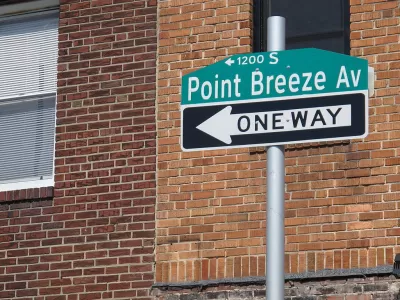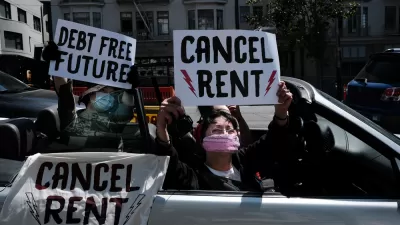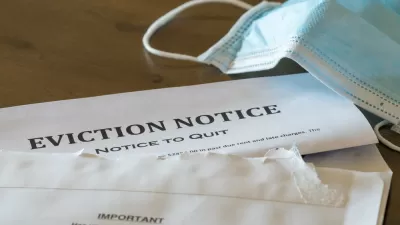In a typical pre-pandemic year, landlords in Philadelphia filed around 20,000 evictions. Last year, landlords filed just 4,500.

In a typical pre-pandemic year, according to research from the Reinvestment Fund, landlords in Philadelphia filed around 20,000 evictions. Between 2010 and 2019, that number shrank a bit, as employment, wages, and access to health insurance all inched upward, according to the group’s analysis. But rather than spiking when Covid-19 shut down the U.S. and put millions of people out of work, the eviction rate dropped. In 2020, landlords filed 4,500 evictions against tenants, according to the Philadelphia Eviction Prevention Project (PEPP), a coalition of legal aid and tenant advocacy groups.
The drop is thanks to a combination of federal moratoria on evictions, emergency rental assistance, and sustained local commitment to programs like eviction diversion, says Rasheedah Phillips, managing attorney for housing policy at Community Legal Services, one of the groups that coordinates PEPP. But Philadelphia is still one of the poorest big cities in America. And as the moratoria begin to expire this year, Phillips says, “The eviction rates are going to go right back up.”
The Philadelphia Eviction Prevention Project was launched at the beginning of 2018 with a $500,000 budget. Among the services the group provides are a tenant hotline for tenants to access legal services, a “lawyer-of-the-day” program providing free legal representation to tenants in eviction court, and frequent tenants’ rights workshops from the Tenant Union Representative Network. In 2019, PEPP had a budget of $2.1 million, and last year, after some budgetary negotiations during the pandemic fallout, it worked with $1.8 million, according to Phillips. This year, according to a report in WHYY, Mayor Jim Kenney’s proposed budget includes $931,000 for the project. (The city’s press office did not respond to questions about the proposal.) Advocates are now fighting to have at least $2.1 million restored for PEPP in the budget negotiation process between the mayor and city council.
FULL STORY: In Philadelphia, the Fight to Fund Eviction Prevention Continues

Montreal Mall to Become 6,000 Housing Units
Place Versailles will be transformed into a mixed-use complex over the next 25 years.

Planetizen Federal Action Tracker
A weekly monitor of how Trump’s orders and actions are impacting planners and planning in America.

California High-Speed Rail's Plan to Right Itself
The railroad's new CEO thinks he can get the project back on track. The stars will need to align this summer.

Tenant Advocates: Rent Gouging Rampant After LA Wildfires
The Rent Brigade says it's found evidence of thousands of likely instances of rent gouging. In some cases, the landlords accused of exploiting the fires had made campaign donations to those responsible for enforcement.

Seattle’s Upzoning Plan is Ambitious, Light on Details
The city passed a ‘bare-bones’ framework to comply with state housing laws that paves the way for more middle housing, but the debate over how and where to build is just getting started.

DOJ Seeks to End USDOT Affirmative Action Program
The Disadvantaged Business Enterprise Program encouraged contracting with minority- and women-owned businesses in the transportation sector, where these groups are vastly underrepresented.
Urban Design for Planners 1: Software Tools
This six-course series explores essential urban design concepts using open source software and equips planners with the tools they need to participate fully in the urban design process.
Planning for Universal Design
Learn the tools for implementing Universal Design in planning regulations.
City of Camden Redevelopment Agency
City of Astoria
Transportation Research & Education Center (TREC) at Portland State University
City of Camden Redevelopment Agency
Municipality of Princeton (NJ)
Regional Transportation Commission of Southern Nevada




























